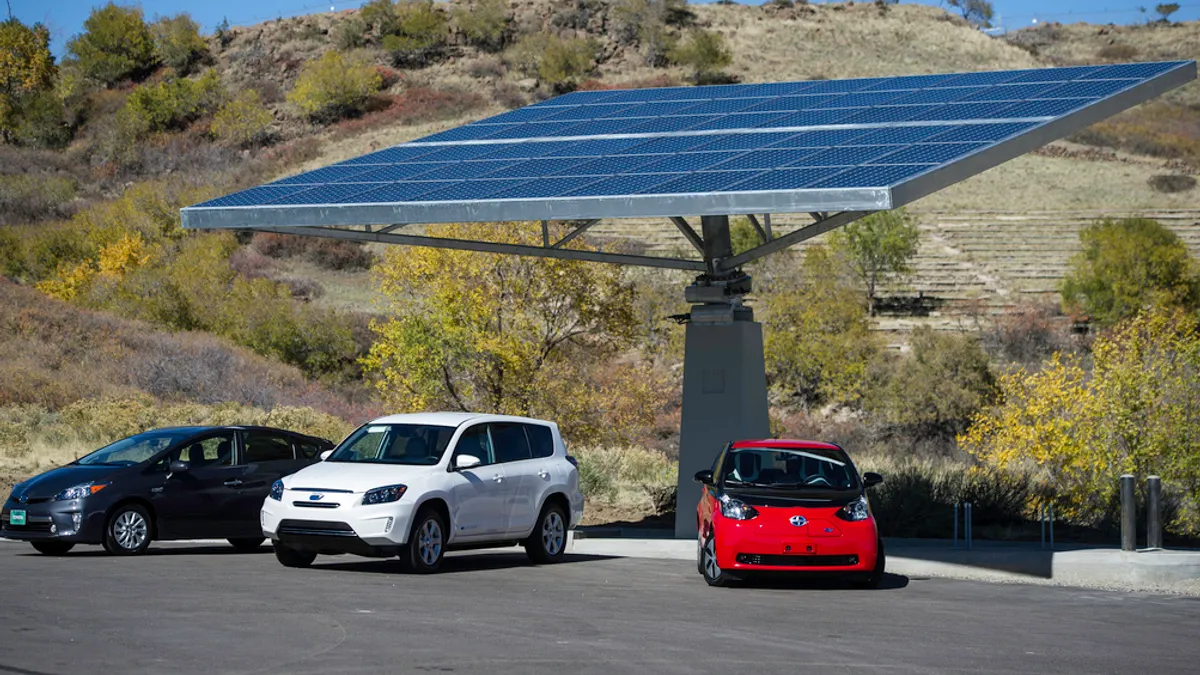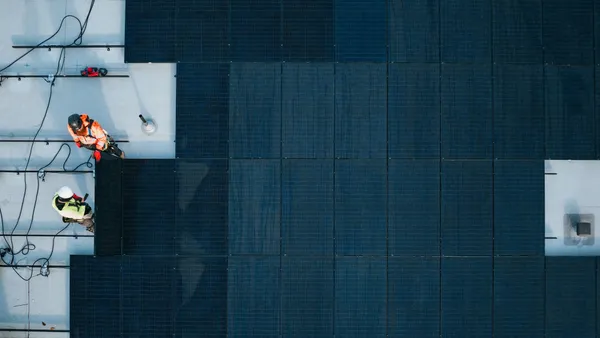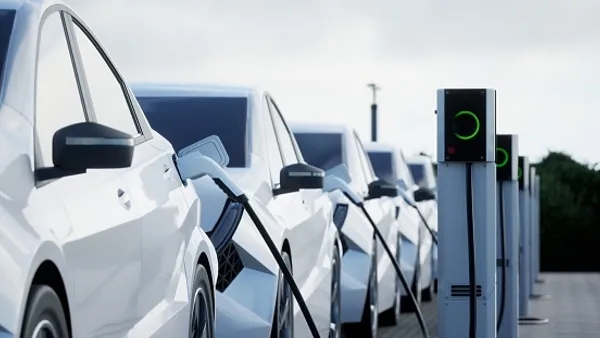Dive Brief:
- Massachusetts Attorney General Maura Healey has called for a major initiative to accelerate the adoption of electric vehicles and other electrified transportation and clean energy, calling this a "critical moment" for investment in the state.
- Healey revealed her proposal as she testified before the state's Department of Environmental Protection on how to utility $75 million in settlement funds from Volkswagen, who was discovered cheating on emissions standards with their "clean diesel" vehicles.
- Massachusetts currently has a goal of 300,000 zero-emissions vehicles on the road by 2025, but Healey's plan calls for exceeding that target, moving to electric busses by 2030, and developing policies like time-of-use plans that can help the industry grow.
Dive Insight:
Massachusetts is deciding how to use its share of state and federal settlements with Volkswagen, Audi, and Porsche that stemmed from settlements over the automakers cheating emissions tests. Healey wants to see it used to grow adoption of zero-emissions vehicles, as part of the state's broader clean energy plan.
The state, she said, “can lead the nation with a comprehensive plan for electric vehicles that will transform how we move around. This is a critical moment to invest in electric vehicles and grow our clean energy economy.”
This proposal followed an active week for Massachusetts and its clean energy goals. Combined with broad legislation being considered to accelerate the clean energy transition, and federal approval of a transmission system to serve offshore wind, the state is embracing a wide range strategies.
Healey's proposal calls for development of a comprehensive electric vehicles plan to exceed the state’s current goal of getting 300,000 EVs on the road by 2025. That plan would include strategies for charging infrastructure and rate design, including time-of-use rates. The plan would also make all new busses purchased in Massachusetts be electric by 2030.
Healey also specified a need for policies that make EVs accessible to a range if income levels, and those in multi-unit buildings. The state would also work to create better incentives for buildings to put charging stations in parking lots and garages.
The attorney general also called for development of a plan to meet most of the state's power needs with renewables by 2050, and 50% or more by 2030. Healey wants to modernize the renewable portfolio standard, advance efficiency and explore residential storage.
Massachusetts senators have introduced a broad clean energy bill that would raise the renewable portfolio standard's required growth rate from 1% to 3% annually. The legislation would also set goals of 5,000 MW of offshore wind power for the state, and an energy storage target of 1,766 MW by 2025.















